Watch Nabihah’s documentary, An-nisa, which spotlights the diversity and talent of British Muslim women here.
The impressive studio lights, the dramatic breaking news music, and a middle-aged (most likely white) news presenter are front and centre. I grew up in a household with parents who were as dedicated to watching the evening news headlines as they were to insisting I achieve grade-A school results. It was nothing new for the average brown household, only this wasn’t the UK, but instead, we were sat in our Arabic-style living room in the Middle East in the late 90s.
At the time, these moments felt insignificant, dare I say borderline annoying, for a young girl who wanted to catch up on the latest Disney or Nickelodeon show before bedtime. Little did anyone in that family scene know that the young girl would move back to the UK and, years later, pursue a career in journalism to challenge the very status quo she grew up watching on her TV screen every night.
I moved back to the UK in a post-9/11 world, with my family being very visibly Muslim and proud of it. Following that, I can vividly remember being in the dining hall at school on the day of the 7/7 attacks. I had entered my teenage years not fully aware of the growing anti-Muslim sentiment happening around me and not entirely clued up (or frankly interested) in the “war on terror” declared by the US and so adamantly supported by the UK.
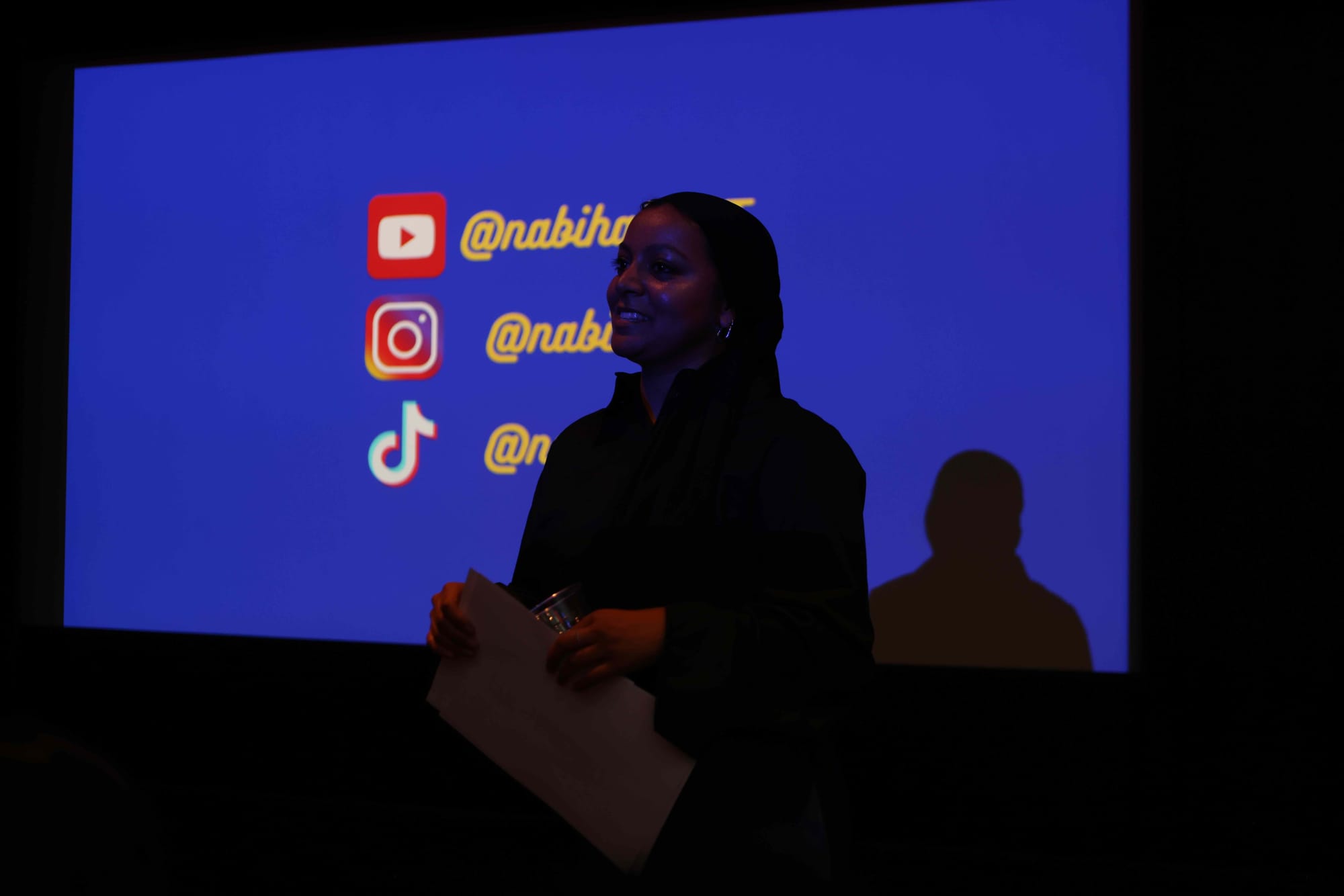
This is when the relationship between my identity and the reality of the world I was living in started to become more complex. What I was seeing on the news and hearing people talk about in public about the Middle East - a part of the world I loved so dearly - didn’t add up to me. I grew up not having to be afraid of being Muslim or hiding my religion in any way. If anything, I was taught to embrace it. I lived in a society that allowed me to hear the adhan (call to prayer) five times a day, where businesses shut on Friday afternoons for jummah (Friday prayers), and where I never had to worry about asking at a restaurant if the food was halal.
The countries I grew up in were welcoming, the religion I saw being practised widely was beautiful, and the memories I have from this time were full of peace. So why were the headlines so stark in contrast? Why were people in the UK so hateful of a place they’d probably never even visited and a culture they surely didn’t even know?
As I grew up, the misunderstandings between my religion and the British society I was living in felt like they were growing further apart.
When I decided I wanted to become a journalist, a part of me felt I needed to rewrite the news stories of the past. I wasn’t seeing the beauty and strength of the Muslim women I knew in my life in the stories shown on TV.
Storytelling has always been a strong skill of mine, from writing my own fiction novels at age 5 to recounting adventures from the Middle East to friends aged 15. When I decided I wanted to become a journalist, a part of me felt I needed to rewrite the news stories of the past. I wasn’t seeing the beauty and strength of the Muslim women I knew in my life in the stories shown on TV, I wasn’t seeing news reporters on screen who looked like me, and I didn’t feel like the communities I belonged to were accurately being represented in the media, if at all.
The dream was to become one of the shiny, well-spoken news presenters that hundreds of thousands of people looked to for truth and guidance every evening from their living rooms. My professional journalism career started in TV with a junior role at the BBC. I loved the thrill of being live on air, the setting up of the studio right before a news programme, and the formality of it all. But I quickly realised my dream of being the presenter meant sacrificing my dream of sharing other people’s truths.
The thing I loved most about being involved in the news was the fact I could put my stories forward, stories that broke negative stereotypes about Muslims, South Asians, or women. So, I let go of the idea of presenting the news and stuck to reporting on it instead, being more involved in meeting people from different communities, hearing their stories, and retelling them with respect and care.
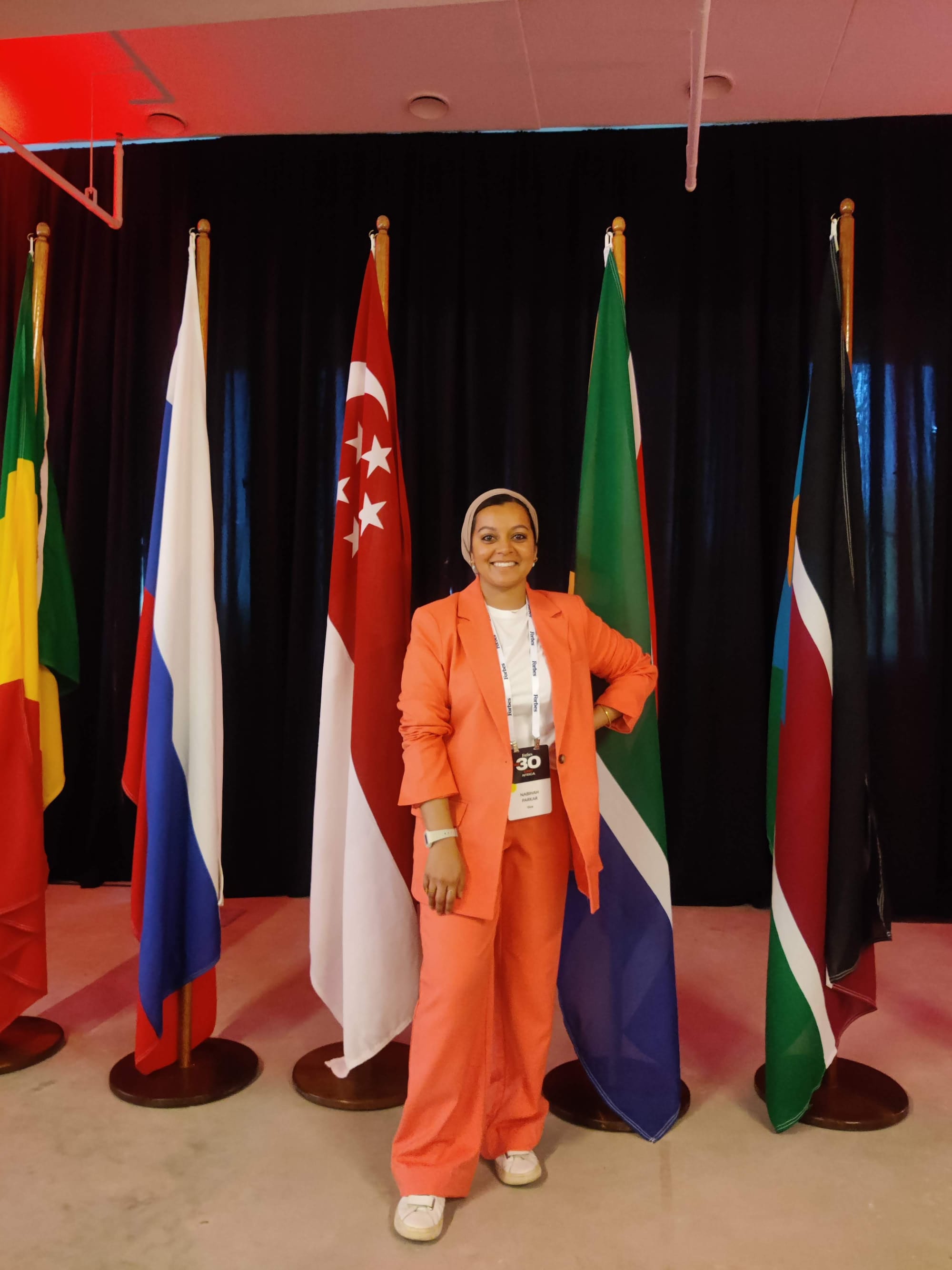
Over the years at the BBC, I gravitated towards telling global stories that had women of colour at the heart of it. I worked with young women in Yemen wanting to change the country’s landscape and preserve their culture amidst brutal wars and ongoing economic turmoil. I interviewed a woman in Bangladesh who worked in a fast fashion factory and lost her job during the pandemic. I spoke to Muslim women in France about their fears of the country’s encroaching hijab laws and their determination to stand proud against a government they felt wanted them gone. These are the stories that matter to me, and the ones I felt didn’t get any airtime when I was growing up - and to some degree, still don’t get the airtime they deserve today.
I carried this forward into all the roles I ended up working in at the BBC and later on while working at HuffPost UK, as well as most recently at VICE. Some of my latest reporting, now with a focus on telling stories for social media rather than TV, included investigations into the Taliban’s increasing restrictions on women’s rights and interviewing women at the forefront of anti-regime protests in Iran. Women, Muslim women, and women of colour continue to be the focal point in my storytelling because I believe their voices remain underrepresented in today’s media landscape.
This project is one that came directly from my heart, and I was able to create it based on my own vision. I directed the series myself, filmed it myself, and edited it myself to prove to myself that not only can I stand up in a newsroom and be a voice for Muslim women, but I can stand up on my own and do it too.
Although I had the opportunities to tell the stories I wanted to, working in large newsrooms over the years meant those stories had to still fit a broader narrative or be tied down to the daily news agenda.
When I left my previous job, I had a desire to do things on my own terms and in my own way. That’s how the idea for An-nisa was born. In Arabic, an-nisa means ‘the women’, and I wanted to offer a space for Muslim women to not only share their stories but to be authentically themselves and feel understood.
Each episode in the series focuses on an individual Muslim woman, her professional achievements, and her relationship with her religion. I was inspired by the women I constantly meet, come across online, or read about, who are excelling professionally in worlds that don’t necessarily favour women, let alone Muslim women. I wanted to showcase their bravery, their personalities, and their pride in being Muslim. I also intended to show the world how diverse we are as a community, something that gets neglected when Muslim women appear in news stories specifically.
This project is one that came directly from my heart, and I was able to create it based on my own vision. I directed the series myself, filmed it myself, and edited it myself to prove to myself that not only can I stand up in a newsroom and be a voice for Muslim women, but I can stand up on my own and do it too.
Become a Disruptors member and enjoy exclusive access to inspiring and insightful stories of positive Disruptors, events, exclusive offers and a platform with a community of like-minded individuals making a positive impact — all while supporting an independent media company dedicated to closing the gender narrative gap, and fostering equality and inclusion by amplifying women’s voices and celebrating those who challenge the status quo for a better world.

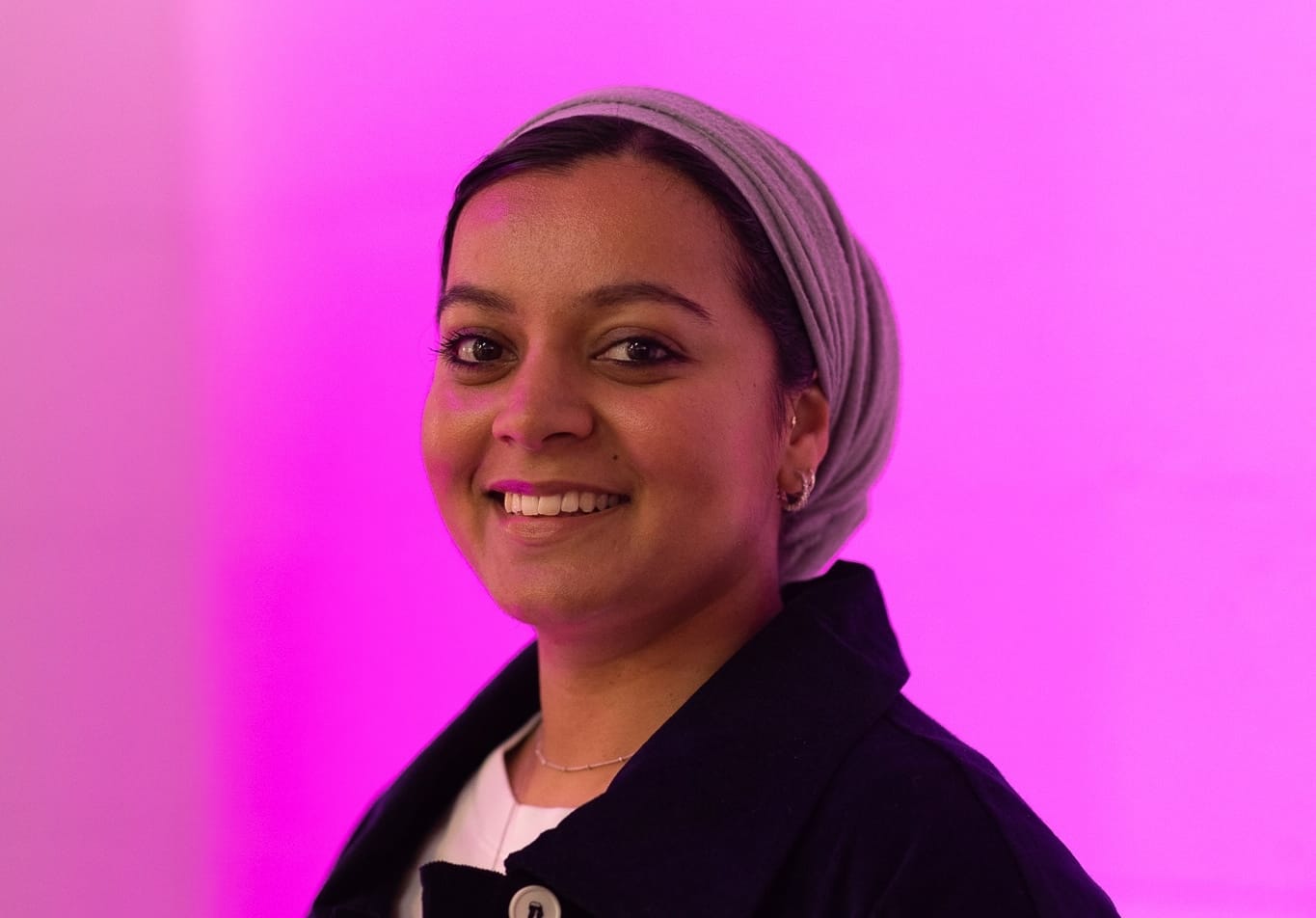


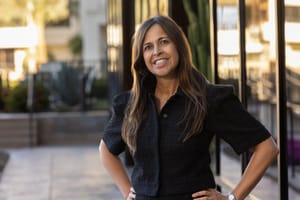


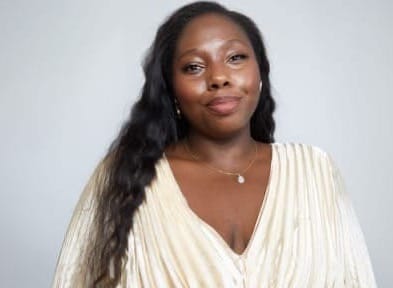

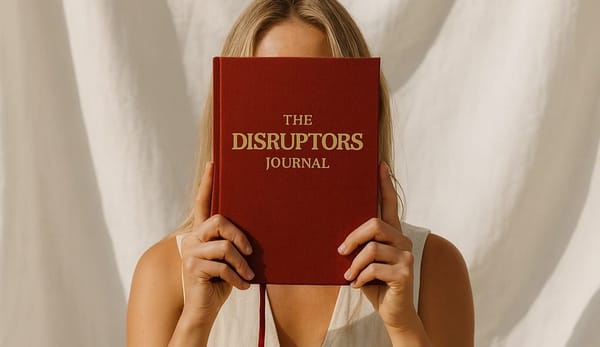
Member discussion